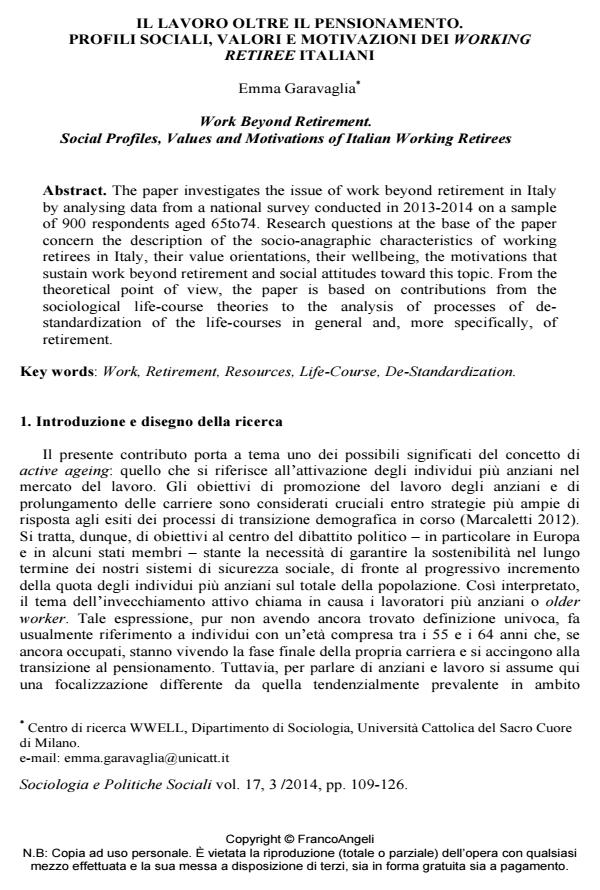Il lavoro oltre il pensionamento. Profili sociali, valori e motivazioni dei working retiree italiani
Titolo Rivista SOCIOLOGIA E POLITICHE SOCIALI
Autori/Curatori Emma Garavaglia
Anno di pubblicazione 2015 Fascicolo 2014/3
Lingua Italiano Numero pagine 18 P. 109-126 Dimensione file 130 KB
DOI 10.3280/SP2014-003006
Il DOI è il codice a barre della proprietà intellettuale: per saperne di più
clicca qui
Qui sotto puoi vedere in anteprima la prima pagina di questo articolo.
Se questo articolo ti interessa, lo puoi acquistare (e scaricare in formato pdf) seguendo le facili indicazioni per acquistare il download credit. Acquista Download Credits per scaricare questo Articolo in formato PDF

FrancoAngeli è membro della Publishers International Linking Association, Inc (PILA), associazione indipendente e non profit per facilitare (attraverso i servizi tecnologici implementati da CrossRef.org) l’accesso degli studiosi ai contenuti digitali nelle pubblicazioni professionali e scientifiche.
The paper investigates the issue of work beyond retirement in Italy by analysing data from a national survey conducted in 2013-2014 on a sample of 900 respondents aged 65to74. Research questions at the base of the paper concern the description of the socio-anagraphic characteristics of working retirees in Italy, their value orientations, their wellbeing, the motivations that sustain work beyond retirement and social attitudes toward this topic. From the theoretical point of view, the paper is based on contributions from the sociological life-course theories to the analysis of processes of destandardization of the life-courses in general and, more specifically, of retirement.
Parole chiave:Work, Retirement, Resources, Life-Course, De-Standardization
- La formazione alla ricerca Cristina Banchi, pp.255 (ISBN:979-12-215-0504-7)
Emma Garavaglia, Il lavoro oltre il pensionamento. Profili sociali, valori e motivazioni dei working retiree italiani in "SOCIOLOGIA E POLITICHE SOCIALI" 3/2014, pp 109-126, DOI: 10.3280/SP2014-003006